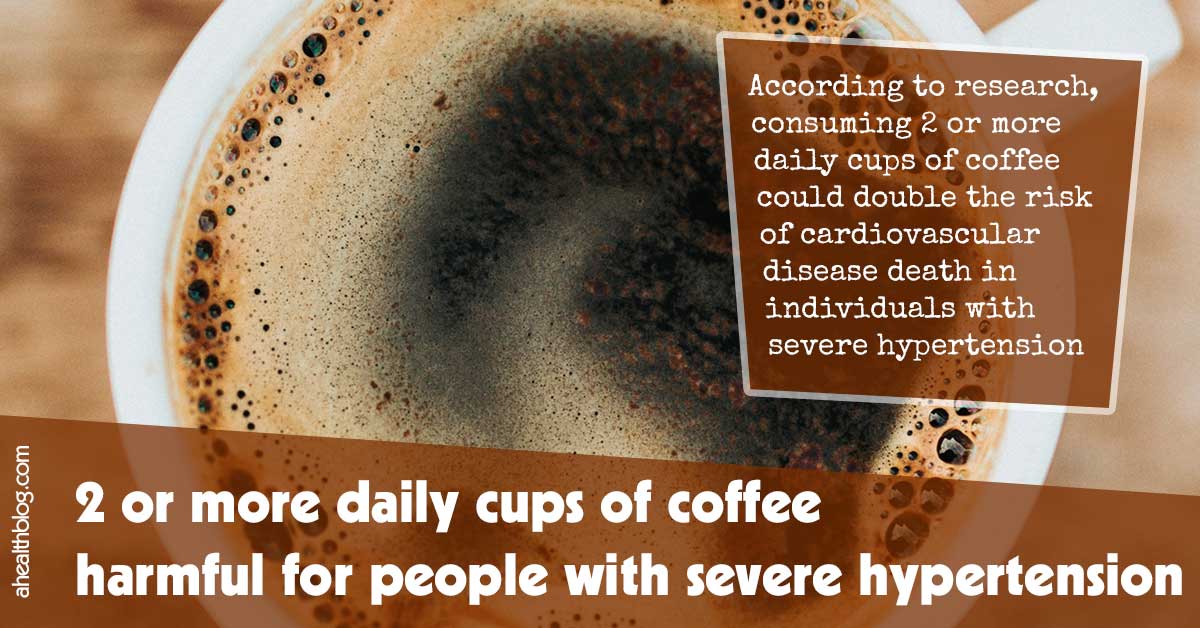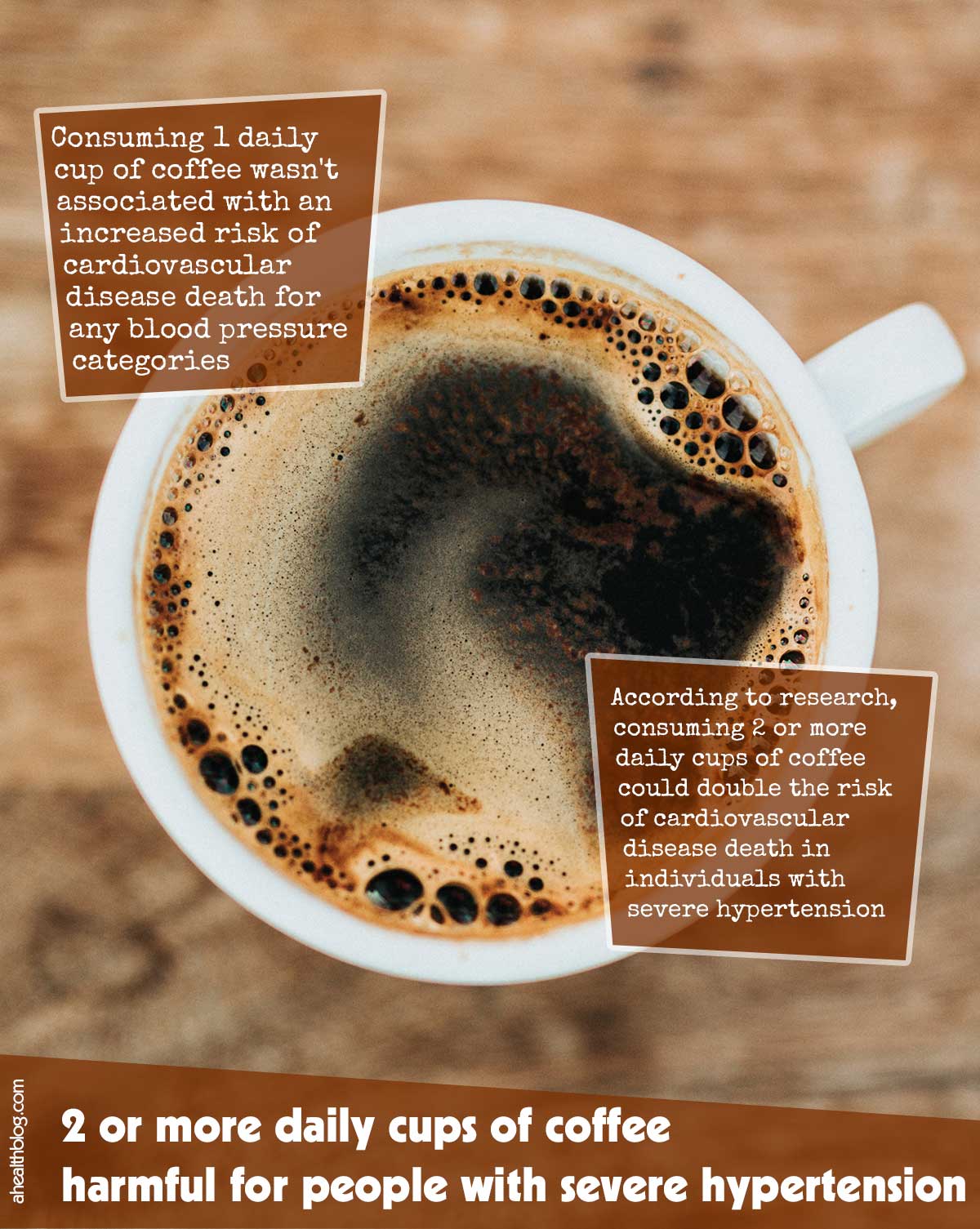According to research, consuming 2 or more daily cups of coffee could double the risk of cardiovascular disease death in individuals with severe hypertension classified as 160/100 mm Hg or more, but not in individuals with hypertension not regarded as severe.1✅ JOURNAL REFERENCE DOI: 10.1161/JAHA.122.026477
In comparison, the researchers observed that consumption of 1 daily cup of coffee or green tea didn’t increase the risk of death associated with cardiovascular disease at any blood pressure reading, although both beverages contain caffeine.
Prior research found that consuming one daily cup of coffee could help survivors of heart attacks by reducing their risk of death following a heart attack and could prevent strokes or heart attacks in healthy people.
Other research has also suggested consuming coffee regularly could lower the risk of developing chronic illnesses, which include some cancers and Type 2 diabetes; could help to reduce depression risk; could help to control appetite; or increase alertness, although it’s unclear if this effect is from the caffeine or some other ingredient in coffee.
On the flip-side, excessive coffee consumption could increase blood pressure and result in, heart palpitations, anxiety, and sleep issues.
This study’s goal was to figure out if coffee’s protective effects will also apply to people with various degrees of high blood pressure, and also looked at the effects of green tea in these individuals.
Hypertension happens when the force of blood pushing against the walls of blood vessels is constantly too high, making the heart function harder to pump blood.
The American Heart Association’s blood pressure guidelines classify high blood pressure as a reading of 130/80 mm Hg or higher.
This study’s blood pressure classifications were a bit different from the American Heart Association’s guidelines. Blood pressure was grouped into 5 categories: under 130/85 mm Hg was classified as optimal and normal; 130-139/85-89 mm Hg was classified as high normal; 140-159/90-99 mm Hg was classified as grade 1 hypertension; 160-179/100-109 mm Hg was classified as grade 2 hypertension; and over 180/110 mm Hg was classified as grade 3 hypertension. Grades 2 and 3 blood pressure measurements were regarded as severe hypertension for this study.
The individuals participating in the study consisted of over 12,000 women and over 6,570 men between the ages of 40 and 79 at the beginning of the study. They were recruited from a large, prospective study and they provided data by way of health examinations and self-administered questionnaires evaluating diet, lifestyle, and medical history.
842 cardiovascular-related deaths were reported throughout almost 19 years of follow-up. The data analysis for all participants showed that:
- Consuming 2 or more daily cups of coffee was linked to double the risk of cardiovascular disease death in individuals whose blood pressure was 160/100 mm Hg or more in comparison to individuals who didn’t consume any coffee.
- Consuming 1 daily cup of coffee wasn’t associated with an increased risk of cardiovascular disease death for any blood pressure categories.
- Consumption of green tea wasn’t linked to an increased risk of death from cardiovascular disease for any blood pressure categories.
These results could support the recommendation that individuals with severe hypertension should avoid consuming too much coffee. Because individuals with severe high blood pressure are more susceptible to caffeine’s effects, its harmful effects could outweigh its beneficial effects and could increase the risk of death.
The study revealed that individuals with more regular coffee consumption were more likely to consume fewer vegetables, be current drinkers, be current smokers, be younger, and have lower systolic blood pressure and higher total cholesterol levels irrespective of the blood pressure category.
The green tea benefits could be explained by the presence of polyphenols, the micronutrients found in plants that have antioxidant and anti-inflammatory properties. The polyphenols could be part of the reason why only the consumption of coffee was linked to an increased risk of death in individuals with severe hypertension despite both coffee and green tea containing caffeine.
The study had some limitations: blood pressure readings were taken at a single point which didn’t take into account changes over time, consumption of tea and coffee was self-reported, and because the study was observational, a direct cause-and-effect association couldn’t be concluded between coffee consumption and cardiovascular disease risk in individuals with severe hypertension.




